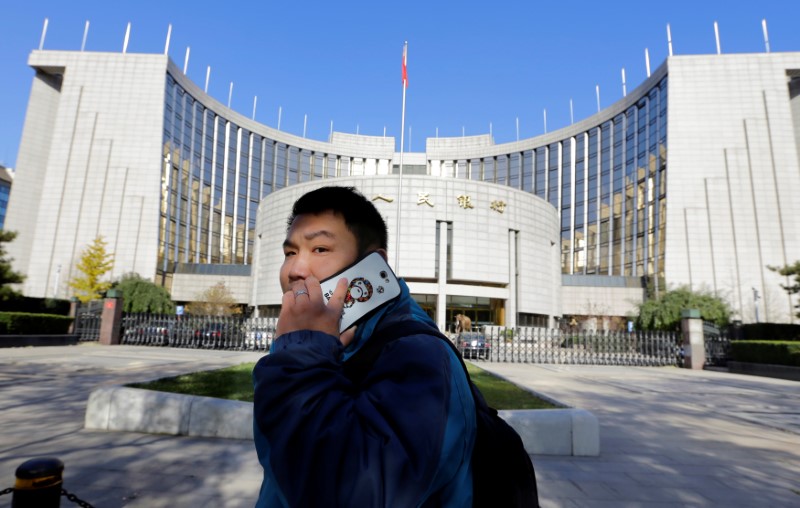By Ambar Warrick
Investing.com-- The People’s Bank of China injected a total of 175 billion yuan ($24.7 billion) into the banking system on Tuesday through reverse repo operations, in a bid to maintain liquidity in the system.
The amount consisted of 113 billion yuan of seven-day reverse repos at an interest rate of 2%, state-run media house Xinhua said in a report. The operation also consisted of 62 billion yuan of 14-day reverse repos at an interest rate of 2.15%.
A reverse repo, or reverse repurchase agreement, is a process through which the central bank purchases securities from commercial banks to maintain their liquidity levels. The central bank also agrees to sell them back the securities at a future date.
The PBoC said the move was intended to keep liquidity stable in the banking sector at the end of a turbulent third quarter. The move is also among the larger liquidity injections by the PBoC as it moves to shore up slowing economic growth in the country.
Last week, the central bank lowered the borrowing cost of 14-day reverse repos, and vowed to increase cash injections amid higher demand towards the end of the quarter.
The move was also a follow-up to the PBoC’s decision in August to trim key interest rates in a bid to shore up laggard economic growth in the country.
Chinese economic activity has fallen drastically this year in the face of continued disruptions from COVID-related lockdowns. Weakness in the yuan has also weighed heavily on import-dependent sectors, by making commodity shipments more expensive.
Data on Tuesday showed China’s industrial profits sank for a second straight month in August.
The yuan is now trading at an over two-year low, after crashing past the psychologically important 7 level earlier this month. This has put the PBoC in a precarious position, as it needs to shore up economic growth without risking further declines in the currency.
A series of strong midpoint fixes by the PBoC also indicates that the bank is hesitant to let the yuan fall any further.
